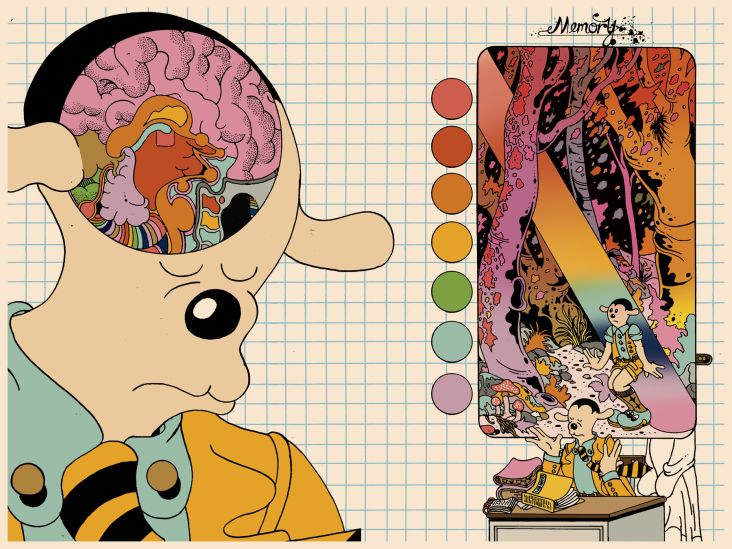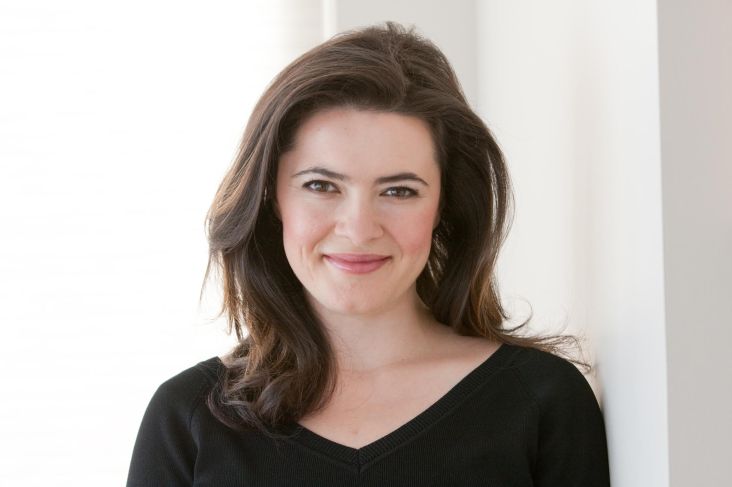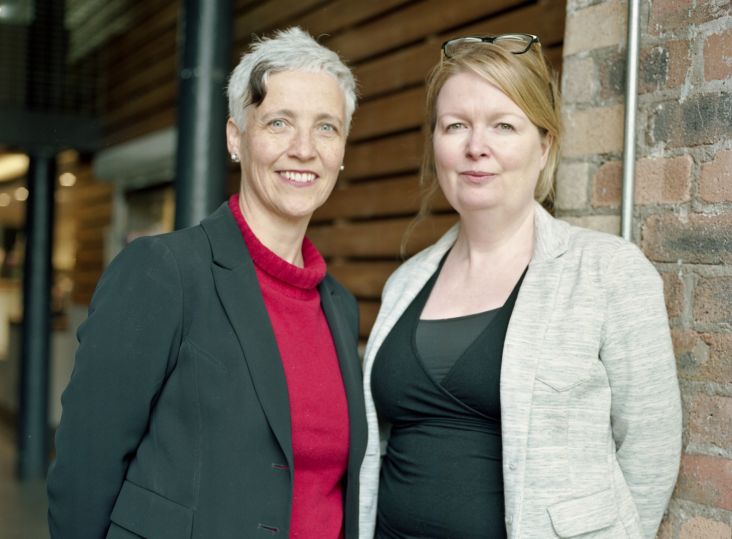Pete Mosley on the art of shouting quietly and how introvert creatives can thrive
Pete Mosley is a creative business advisor, coach and trainer who delivers courses, talks and workshops on confidence, self-promotion and the business of creativity. A renowned speaker, he's also a contributor to Cambridge University's Queens Young Leaders programme, creating webinars that are enjoyed worldwide.

Pete is the author of two successful books, the latest being The Art of Shouting Quietly – A Guide to Self-Promotion for Introverts and Other Quiet Souls. This text is perfect for those shy and quieter types in the creative industries who might struggle with their own marketing.
It aims to help introverts to find success on their own terms, boost their confidence, get a clear sense of direction, overcome barriers and connect effectively with others. We spoke to Pete to learn more about his book and how he feels quieter creative professionals can thrive, despite them being introverted.
Tell us more about your own career path – how did you get here?
I went to art college in the '70s to do ceramics, join a rock band, got distracted and end up with a degree in Fine Art. Following that, I spent three years as a town artist in Chorley, Lancashire, followed by about 15 years working in the participatory arts both here and in the USA.
The Arts Council recruited me to help other young artists establish their careers and encouraged a move into training and development. Later, I did a post-graduate qualification in Business and Personal Coaching. I now wear three hats. I write, I speak and I run workshops around the themes of quiet self-promotion and creative business for universities, business incubators, arts organisations and creative hubs.
I work face-to-face with creatives who want to overcome obstacles and develop their businesses. I love my work and feel privileged to meet and support so many talented people.
You've written several books, the latest being 'The Art of Shouting Quietly'. Tell us more...
I started writing professionally almost by accident. Someone who had attended one of my Creative Strategy training courses asked if I'd do an article for the British Artist Blacksmithing Association magazine. It turned out well and I enjoyed the whole experience.
I then wrote to Craft & Design magazine, asking if they would like something similar. That led to many more articles followed by the publication of Make Your Creativity Pay, which was a joint project. The ideas behind The Art of Shouting Quietly grew from the realisation that the majority of the creative people that I worked with struggled with self-promotion through introversion, shyness or a mistrust of the marketing process itself. I tested the idea with a Crowdfunding campaign and people loved it – the campaign was oversubscribed and the book was bought in 15 countries. It's now a set text for Cambridge University's Leading Change programme and featured on Susan Cain's wonderful Quiet Revolution website.
Many see shyness, quietness or introversion as a weakness, you consider it a strength – how so?
My father, a sea captain for 25 years, personified quiet strength. I know now he was deeply introverted. I fell into step with him at an early age and just took quietness to be normal. I've always felt the worst decisions we make in life tend to be the ones we have rushed towards. The bigger the import of the decision, the longer I tend to take to make it.
Introverts are better at dealing with uncertainty – 'staying with the not knowing' as it's known in coaching circles – and weigh things up more carefully. They are also good at taking multiple viewpoints on board in the decision-making process.
Why do you think these character traits are often perceived so negatively?
Some people just want a quick answer, others replenish their energy stores via group activity and lots of lively conversation. Introverts tend to avoid those things and can end up being perceived as anti-social or aloof. People who are shy or under-confident often display the same behaviours and suffer in the same way. The desire to weigh things up properly can slow down decision-making, which infuriates many extroverts.
What makes an introvert? Paint us a picture.
That's not an easy question. Introversion and extroversion exist on a continuum, not as polar extremes. Most people have a mix of both – ambiversion. I know quiet people, myself included, who seem to break the mould in surprising ways by being good at public speaking or live performance. After the gig, of course, they rush off to a quiet room to recover. Many well-known public figures are introverts. Needing lots of space to think, and quiet time alone to recharge are fairly typical traits.
So you're shy and quiet yourself... What have you found works for you in tackling this?
At times in my life, I have suffered the triple whammy of introversion, shyness, and loss of confidence. Illness, life events and well-meaning criticism from loved ones can set a person back. I've adopted the tactic of breaking difficult problems down into many small steps and building (or rebuilding) confidence in small, manageable stages.
I allow myself to enjoy the small successes in the certain knowledge that they build progressively into quite impressive achievements. I also go away on my own a couple of times a year – the space and time help my busy brain process ideas. I come back feeling much saner as a result.
What do introverts need to be able to be creative and work effectively?
Peace, quiet, time to think and the ability to manage the impatience of others.
Quiet people tend to struggle with saying 'no' and risk-taking on projects that they can't really handle. How can they have the strength to take back control?
I don't think it's only introverted that suffer from the inability to say no. Learning to say no can be the single most powerful bit of learning ever for some creatives. Saying no is a prerequisite to getting a clear focus on the things you need to get quality into the work. Quality is a prerequisite for a successful sustainable career. You need to convince yourself that staying on track is the best course of action – even when people are offering you money to do other stuff.
It's a huge dilemma when you are getting started and need to get money flowing. Know that quality, track record, brilliant communications and happy customers talking about you are incredibly important and focus on what it takes to make those things happen in your business.
Integrity can sometimes be compromised, as a lot of creatives tend to people-please. How can they keep their work lives on their own terms without hurting anyone?
Many creative people love to please their audience and thrive on the positive feedback they get from doing so. Sometimes this is a far more powerful driver than financial reward. Integrity can be maintained by being really clear about your own definition of success, and more often than not it's about maintaining a balance of a number of drivers – money, love, being appreciated, being collected, recognition.
People get hurt when the balance is lost. I've met successful people who have become arrogant and have lost their audience as a result. Or who has become obsessed with the bottom line and lost the very thing that made them creative. Quiet, sensitive souls feel the pain of the world and can fail to cross thresholds of anxiety that others take in their stride. As a result, they fail to get the recognition they need in order to keep going.
How can quieter souls deal with confrontation at work?
Susan Cain, the author of Quiet, and Nancy Kline, the author of Time to Think, have been front runners in offering strategies whereby quiet people can make a huge contribution within settings where they have previously passed over, ignored, or regarded as ineffective.
I firmly believe there is a duty within organisations to create space and routines where quiet people can make their contribution, and lead effectively. Otherwise, a whole tranche of valuable insight and thoughtful analysis gets missed.
In the absence of structure, introverts need to find ways of getting quiet one-on-one time with peers or managers where they can feed in their valuable insights without being overwhelmed by impatient or shouty colleagues. Don't wait to be noticed. Develop ninja-like strategies and get your words in edgeways if necessary.
"Everyone has a place where they can shine, introvert or not. It's about finding platforms for self-promotion that sit comfortably with your values and learning style."
If someone isn't comfortable with self-promotion, how can they get themselves heard?
Many creatives hate the idea that they might be seen as shouty or boastful, so do very little marketing or promotion. In truth, everyone has a place where they can shine, introvert or not. It's about finding platforms for self-promotion that sit comfortably with your values and learning style.
Self-promotion isn't about loudness/quietness or 'in your face' communication. It's about effective storytelling. Quiet people can excel when it comes to projecting their values within their storytelling across just the right selection of platforms to connect effectively.
I advise quiet creatives to stop thinking of themselves as selling and focus instead on cultivating great relationships to build a loyal customer base that will sustain their business. Shouting about your work seldom gets lasting results. Lead with your values, be yourself and people will trust you more.
Through your coaching, what are the common problems you come across when dealing with quieter types? And how do you help them?
Impostor Syndrome and inner critic have to be the two that recur most. The introspection that comes with quietness and/or introversion can fuel feelings of not being good enough. Seeking out good, objective feedback helps a lot. Paying attention to the critical voice helps too – there is much to be learned, and the voice is there for a reason. Take what you can, then let the voice drift off down your thought stream. This, of course, takes practice.
Keep a diary of all the positive stuff that happens. Over time, this can help even the most stubborn self-critic see that there is a balance within the working week. The inner voices that say 'I'm not ready' and 'it's not good enough yet' are two other big sticking points. Procrastination, perfectionism and inner critic get interwoven sometimes and the barriers are hard to budge. That's generally the point at which constructive help needs to be sought. Seeking out, meeting and talking with people who have been down the road before you is time well spent.
And believe me, successful people can be really generous with their time and assistance. It helps to know that you are not alone in these struggles and that all successful people battle these things on a daily basis. A good coach, one who understands the psychology of these things, can help break through these things by providing the tactics to deal with them.
Your first book – Make Your Creativity Pay – was designed for people who want to earn a living from the things they love to do. Is it really possible?
Yes, of course, it is possible. But I must be frank; without quality in the work, without the hours spent in establishing the track record and having that consistently validated by happy customers who then become your advocates, it's really not going to happen. A huge amount of tenacity helps – the phrase 'quiet determination' seems apt here!
"Be a little bit brave on a regular basis, experience the exhilaration of trying new and difficult things, and confidence will increase."
Creative people often come across issues that challenge their self-confidence. How can they build confidence to handle things better in future?
All of the people that I know who have become successful on their own terms spend time in their stretch zone on a regular basis. Be a little bit brave on a regular basis, experience the exhilaration of trying new and difficult things, and confidence will increase. Some of us fall into the trap of worrying about the unpleasant feelings that might be generated by doing something that's a bit scary, so never try. You need to overcome the fear of fear.
Finally, what three pieces of wisdom would you like to share that will help those quieter types out there to lead more successful lives?
Firstly, don't fall into the trap of trying to mimic the behaviour of extroverts. Be yourself.
Next, become a better storyteller. Read about the neuroscience of storytelling and how neural coupling works – it's fascinating and will help you understand how to promote yourself in subtle ways.
Finally, find someone whose work you admire and who communicates their ideas well in ways that you find appealing. Someone whose values you share. Study their methods. Figure out a way to get a conversation going with them. Hint: start this process on social media. There is much to be learned this way.




 by Tüpokompanii](https://www.creativeboom.com/upload/articles/58/58684538770fb5b428dc1882f7a732f153500153_732.jpg)

 using <a href="https://www.ohnotype.co/fonts/obviously" target="_blank">Obviously</a> by Oh No Type Co., Art Director, Brand & Creative—Spotify](https://www.creativeboom.com/upload/articles/6e/6ed31eddc26fa563f213fc76d6993dab9231ffe4_732.jpg)















](https://www.creativeboom.com/upload/articles/f8/f8c8e6b9c7213a7c662135dc8365930725ee2fdf_732.jpeg)
